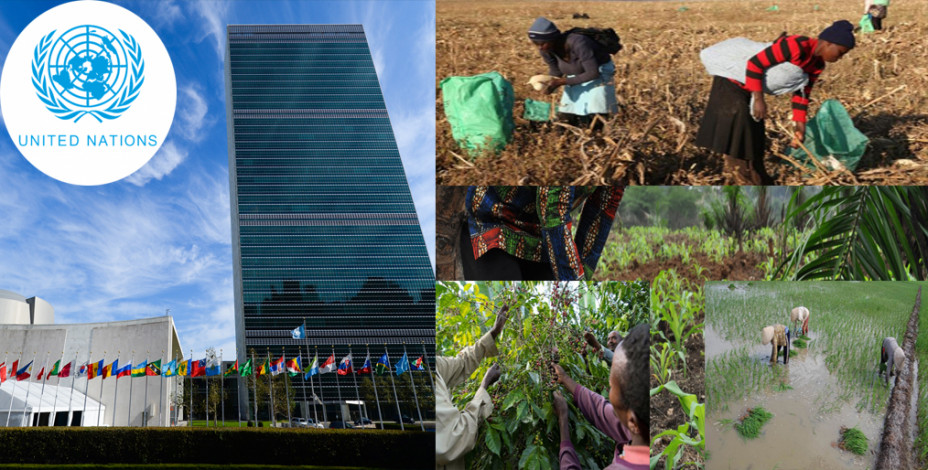
As crop production declines and hunger grows on earth, the United Nations plans to use new financial tools, banks and other partners to fill a gap in agricultural investment for the next decade. The renewal is part of an effort by a Rome-based U.S. company, the International Development Fund (IFAD), to increase support for small-scale food producers in rural areas. Even though half of the world produces food calories, most loans do not have access. Hunger and poverty, on the other hand, are becoming increasingly concentrated in the places where they live and work, the agency said. For the first time, IFAD plans to finance small businesses in some of the poorest countries in the world, either directly or in association with other financial institutions. Until now, it has funded the government, but last year its order was changed to enable it to finance private sector financing. Paul Winters, IFAD associate vice-president, told the Thomson Reuters Foundation most development funding does not get to the local business networks used by farmers on the ground. But IFAD is well-positioned to reach providers of seeds, fertilizers, transport and other goods and services, he added. “The finance that is out there is often either too small or too big,” he said, adding it rarely targets the type of enterprises that work with small-scale producers. “This is new for IFAD but it is also new in general.” UN agencies, for example, local banks or international finance corporations, may operate on the private-sector arm of the World Bank. IFAD can assist businesses by setting up cold storage units where fisheries, dairy farms or plant growers are assisting. Refrigeration can increase their income by avoiding supply overload and bringing in higher prices, holding their milk or product for longer. Winters says that IFAD is now seeking partners for joint ventures of $ 1 million to $ 5 million. Another IFAD project in the works involves partnering with food industry giants like Danone and Mars to prepare small farmers in Ghana to meet growing demand for shea butter. At a two-day meeting of the IFAD-administered council on Tuesday (February 11, 2020), the new financial system may include tapping the global climate finance climate and providing payments in line with project results. IFAD President Gilbert F. Houngbo Thomson told the Reuters Foundation, "tackling the inter-related challenges of climate change, poverty and hunger in rural areas, where three quarters of the poor and food-insecure people live." “Many others are working on climate finance. However, IFAD is the only one that specifically targets small-scale producers,” he added. After a decade of progress, the number of hungry people worldwide has increased for three years. Scientists say the situation is likely to worsen as a result of climate change, with recent studies warning both agricultural and marine fisheries of simultaneous yields in food production, as the water crisis endangers crop yields. Eliminating hunger by 2030, a goal agreed by world leaders in 2015, requires annual investment of more than $115 billion, the United Nations has said. But wealthy governments only provide about $10.5 billion a year in development aid for agriculture, according to the Donor Tracker website. Much more can be achieved by focusing on remote farming communities that IFAD has been working on for decades, he said. Find more… Source: Online/SZK
Comment Now